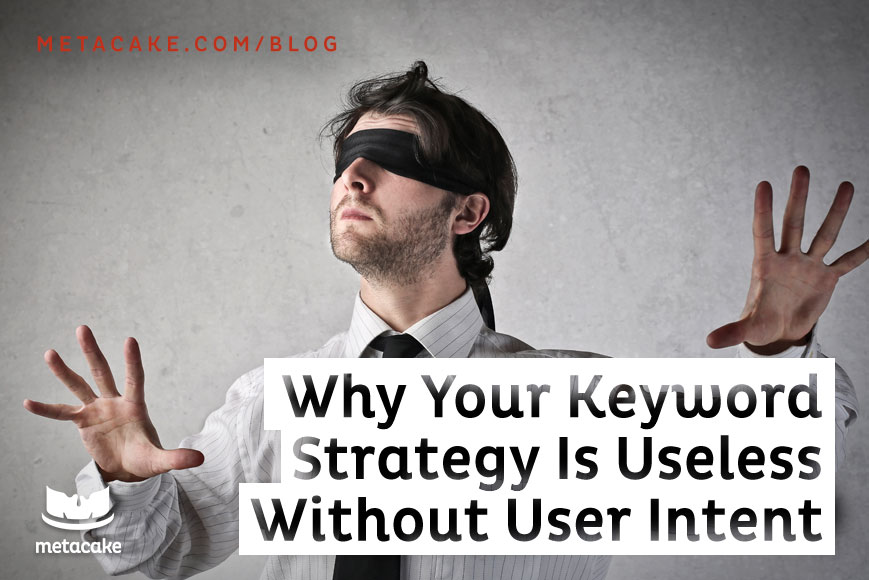You’ve poured over Google’s Keyword Planner, selecting just the right phrases to get your company top, or at least near-top, ranking in search results. You roll out your new AdWords strategy and wait for the customers to come rolling in. You even get lots of traffic to your site.
But none of those visitors are buying. What gives?
In all your meticulous keyword strategizing, you forgot the most important element: user intent. When you focus solely on rankings, you end up attracting people who aren’t looking for your product and you lose customers in the process. If we weren’t careful, we’d attract people looking up how to make cakes.
And we definitely don’t want that…although I never met a cake I didn’t like. (Get it? No? Moving on…).
Keywords are useful and you should utilize them, but before you build them into your site’s DNA, think about what your customers want. Why are they coming to your site? And how might they phrase the information they’re trying to find?
User intent directly correlates to your conversion rates. Google has fine-tuned its search process to return relevant hits based on conversational searches and get inside users’ minds. You should do the same.
Intent Matters
People don’t always have the vocabulary to start a precise search. It’s up to you to figure out what they might search for so you can get in front of them. Most users are trying to learn how to do something, know something, or go somewhere, even if they’re not sure how to articulate it in a search.
Vague phrases such as “online store” or “ecommerce marketing” attract a diverse crowd, none of whom need what you sell. This is where long-tail keywords come in handy. These longer, more specific search phrases generate less traffic, but higher quality leads. People search for information in odd ways. It takes an intelligent strategy to figure those ways out.
Use Google’s Webmaster Tools as a starting point for finding the search terms that drive people to your site, and build from there. Specific terms will help you weed out those stray searchers who aren’t looking for the kinds of services you offer.
No one expects you to read your customers’ minds. But the more you can think like them, the more accurate your keywords will be. You’ve got real money riding on this, both actual and potential.
In addition to the theoretical customers who will buy from you if you can reach them, you’re likely paying for PPC advertising. The last thing you want is to get clicks from people who want nothing to do with your site.
Content, Not Keywords
Keywords used to run the SEO game, but Google got wise to black hat tricks that earned higher rankings for shoddy content rather than quality, well-written articles. Now, the search engine’s algorithm punishes keyword-stuffed articles and gives good content a better ranking. So don’t worry so much about finding the keywords that deliver the most searches. Focus on crafting excellent content and getting in front of the right audience.
When a user searches for services in your industry, you want them to see a variety of articles and guides from your company. The variety increases the likelihood that you’ll convert them to a customer, and the volume of quality content will help you rise in the search rankings. This doesn’t mean ignoring keywords altogether. Just incorporate them naturally into your articles, case studies, and other materials as part of a more holistic strategy.
Google wants to get the right information to the right people, and so do you. Intelligent keyword strategy ultimately benefits both your bottom line and keeps customers happy.
Customize your keywords and content to how your users think, and you will see increased ROI, guaranteed.
